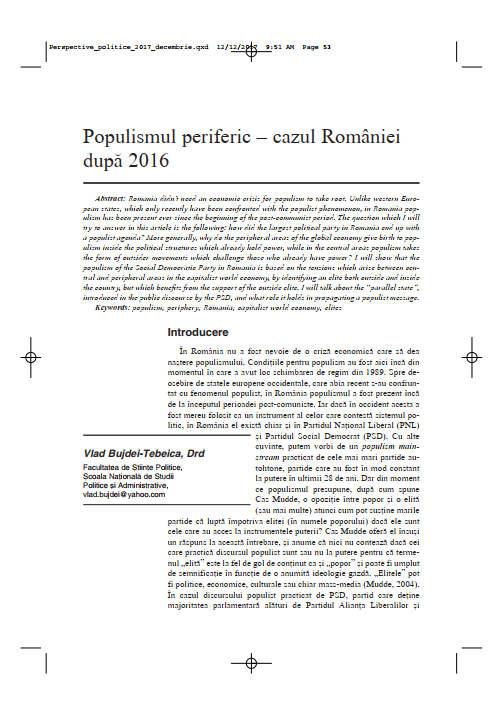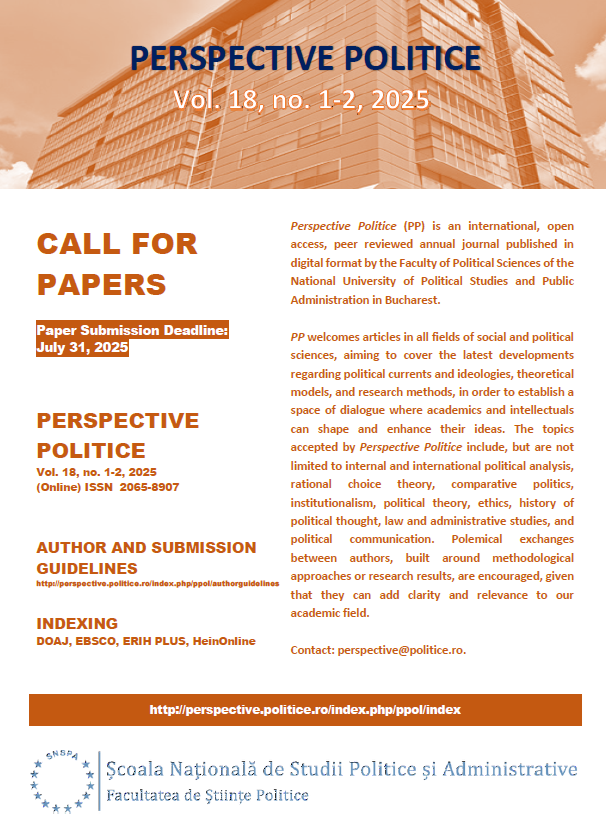Populismul periferic – cazul României dupã 2016
Abstract
Romania didn’t need an economic crisis for populism to take root. Unlike western European states, which only recently have been confronted with the populist phenomenon, in Romania populism has been present ever since the beginning of the post-communist period. The question which I will try to answer in this article is the following: how did the largest political party in Romania end up with a populist agenda? More generally, why do the peripheral areas of the global economy give birth to populism inside the political structures which already hold power, while in the central areas populism takes the form of outsider movements which challenge those who already have power? I will show that the populism of the Social Democratic Party in Romania is based on the tensions which arise between central and peripheral areas in the capitalist world economy, by identifying an elite both outside and inside the country, but which benefits from the support of the outside elite. I will talk about the “parallel state”, introduced in the public discourse by the PSD, and what role it holds in propagating a populist message.




